
The Vibrant Heart of Colombo: Kollupitiya
Kollupitiya, also known as Colpetty, is one of Colombo's most dynamic and bustling areas. This neighborhood seamlessly blends the old with the new, offering visitors a unique glimpse into Sri Lanka's rich cultural tapestry and modern growth. As you stroll through the streets, you'll find a mix of colonial-era buildings, modern skyscrapers, and vibrant street markets that cater to both locals and tourists. One of the highlights of Kollupitiya is its close proximity to the Indian Ocean. The Galle Face Green, a popular seaside promenade, is perfect for a relaxing evening stroll, kite flying, or enjoying street food from local vendors. The sunsets here are truly spectacular and not to be missed. For those interested in shopping, Kollupitiya offers several shopping malls such as Liberty Plaza and Majestic City. These malls house a variety of international and local brands, making it a shopper's paradise. Additionally, the area is dotted with numerous cafes, restaurants, and bars that offer a taste of both Sri Lankan and international cuisine. Cultural enthusiasts will appreciate the presence of several temples and churches in the area. The historic Gangaramaya Temple, with its eclectic mix of Sri Lankan, Thai, Indian, and Chinese architecture, is a must-visit. The temple also houses a museum with an impressive collection of artifacts. Kollupitiya is also a great base for exploring the rest of Colombo. Its central location and well-connected public transport make it easy to visit neighboring attractions such as the National Museum, Viharamahadevi Park, and the bustling Pettah Market.
Local tips in Kollupitiya
- Visit Galle Face Green in the evening for stunning sunsets and local street food.
- Check out Liberty Plaza and Majestic City for a diverse shopping experience.
- Don't miss the Gangaramaya Temple, a hub of cultural and architectural significance.
- Use public transport or tuk-tuks for convenient travel around the neighborhood.
- Try local eateries for authentic Sri Lankan cuisine, especially the seafood.
The Vibrant Heart of Colombo: Kollupitiya
Kollupitiya, also known as Colpetty, is one of Colombo's most dynamic and bustling areas. This neighborhood seamlessly blends the old with the new, offering visitors a unique glimpse into Sri Lanka's rich cultural tapestry and modern growth. As you stroll through the streets, you'll find a mix of colonial-era buildings, modern skyscrapers, and vibrant street markets that cater to both locals and tourists. One of the highlights of Kollupitiya is its close proximity to the Indian Ocean. The Galle Face Green, a popular seaside promenade, is perfect for a relaxing evening stroll, kite flying, or enjoying street food from local vendors. The sunsets here are truly spectacular and not to be missed. For those interested in shopping, Kollupitiya offers several shopping malls such as Liberty Plaza and Majestic City. These malls house a variety of international and local brands, making it a shopper's paradise. Additionally, the area is dotted with numerous cafes, restaurants, and bars that offer a taste of both Sri Lankan and international cuisine. Cultural enthusiasts will appreciate the presence of several temples and churches in the area. The historic Gangaramaya Temple, with its eclectic mix of Sri Lankan, Thai, Indian, and Chinese architecture, is a must-visit. The temple also houses a museum with an impressive collection of artifacts. Kollupitiya is also a great base for exploring the rest of Colombo. Its central location and well-connected public transport make it easy to visit neighboring attractions such as the National Museum, Viharamahadevi Park, and the bustling Pettah Market.
Iconic landmarks you can’t miss
Independence Square
Discover the historical significance and architectural beauty of Independence Square, a must-visit landmark in Colombo, Sri Lanka.
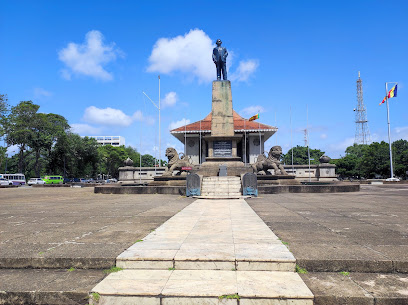
Independence Memorial Museum
Explore the Independence Memorial Museum in Colombo, a historical landmark celebrating Sri Lanka's struggle for freedom and rich cultural heritage.
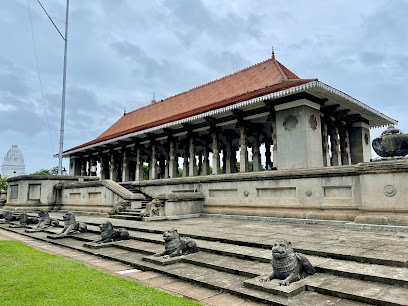
Khan Clock Tower
Discover the iconic Khan Clock Tower in Colombo, a historic landmark that embodies the essence of Sri Lanka's rich heritage and colonial architecture.
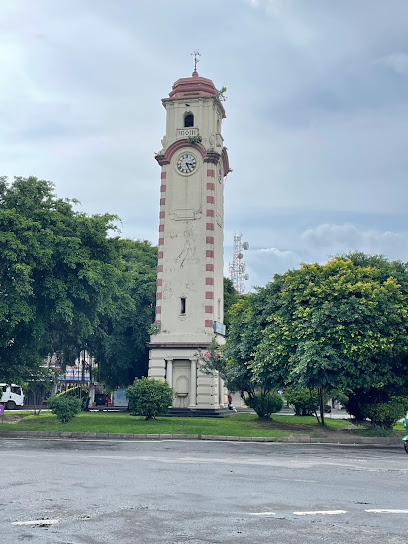
Kayman's Gate - Dutch Bell Tower, කයිමන් දොරකඩ
Explore Kayman's Gate, the enchanting Dutch Bell Tower in Colombo, a historical landmark steeped in colonial charm and cultural heritage.
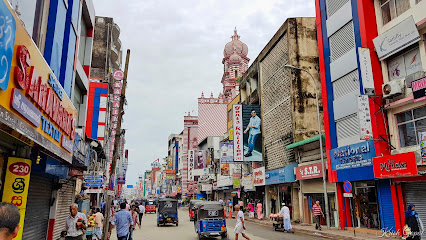
Queen Viharamahadevi Statue
Discover the Queen Viharamahadevi Statue in Colombo, a stunning landmark surrounded by lush gardens, perfect for cultural exploration and relaxation.
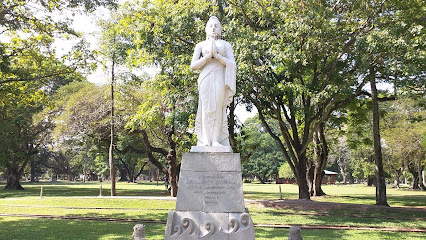
Statue Of Vivekananda
Explore the Statue of Vivekananda in Colombo, a beautiful historical landmark that embodies Sri Lanka's rich spiritual and cultural heritage.
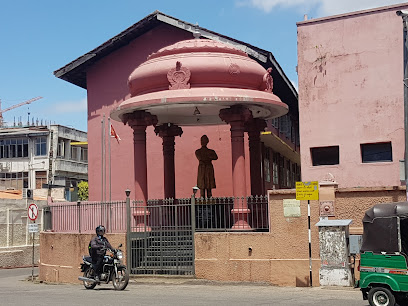
Delft Gateway - Colombo Fort
Explore the historical charm of Delft Gateway - Colombo Fort, a landmark reflecting Sri Lanka's colonial past and vibrant culture.
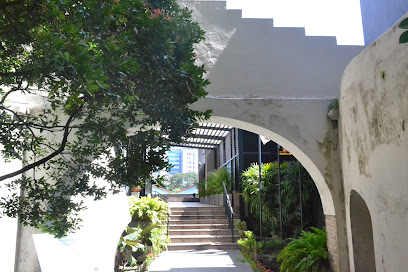
Transworks House
Discover the historical significance of Transworks House, a stunning landmark in Colombo reflecting Sri Lanka's rich colonial heritage.
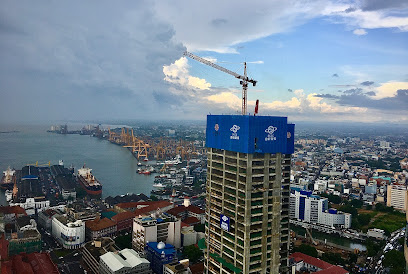
Admiral Anchor
Explore the vibrant atmosphere and rich history at Admiral Anchor, a must-visit tourist attraction in Colombo, offering stunning views and local culture.
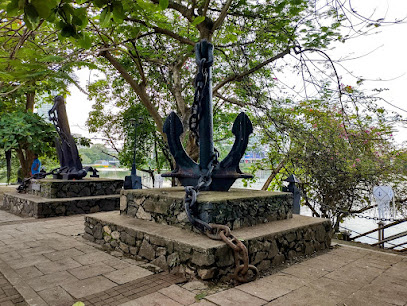
Old Himidumage Fountain (හිමිදුමගේ වටරවුම)
Explore the Old Himidumage Fountain, a captivating historical landmark in Colombo, showcasing exquisite architectural craftsmanship and rich cultural heritage.
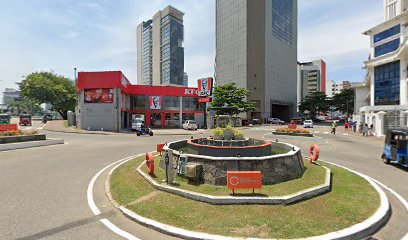
Unmissable attractions to see
Pettah Floating Market
Discover the charm of the Pettah Floating Market in Colombo, where vibrant culture meets delightful street food and unique shopping experiences.
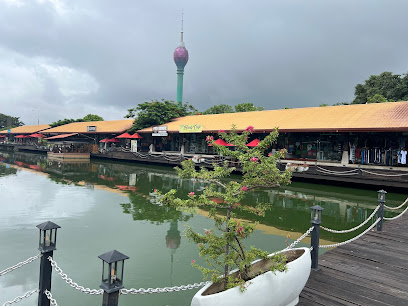
Gangarama Sima Malaka
Explore the tranquil beauty of Gangarama Sima Malaka, a stunning Buddhist temple in Colombo, perfect for meditation and cultural immersion.
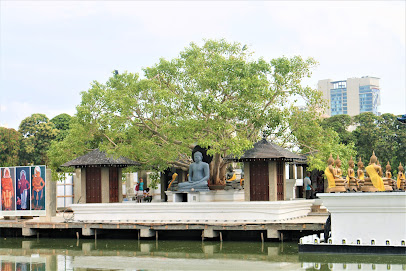
Independence Memorial Museum
Explore the Independence Memorial Museum in Colombo, a historical gem that narrates Sri Lanka's journey to independence through captivating exhibits and serene landscapes.
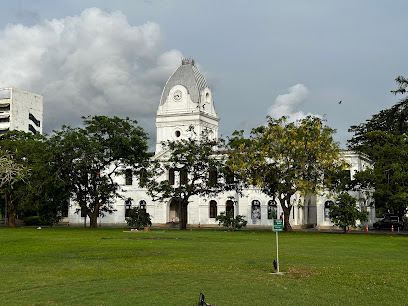
Colombo Port City Beach
Explore the stunning Colombo Port City Beach, a perfect blend of relaxation and adventure along Sri Lanka's beautiful coastline.
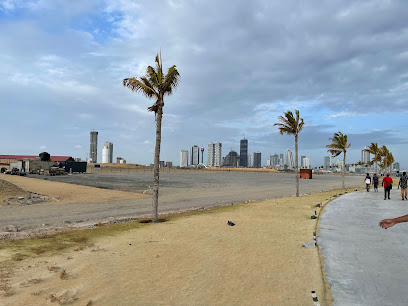
Essential places to dine
Big Plate
Experience exquisite halal dining at Big Plate in Colombo - where local flavors meet international cuisine in a vibrant atmosphere.
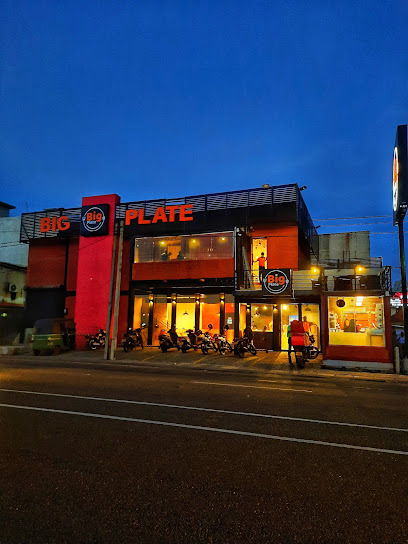
The Sizzle Colombo
Discover The Sizzle Colombo - where every dish is a masterpiece served on sizzling platters.
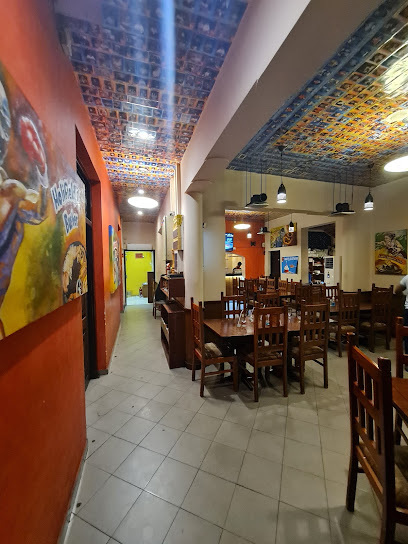
The Gallery Café
Experience culinary artistry at The Gallery Café in Colombo - where exquisite flavors meet vibrant local culture.
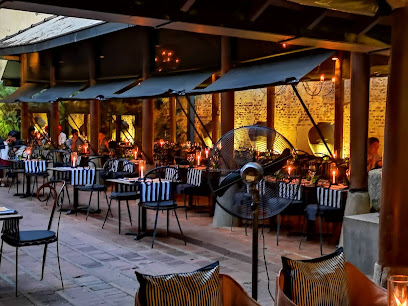
The Lagoon.
Experience unparalleled seafood delights at The Lagoon in Colombo - where every dish tells a story of freshness and flavor.
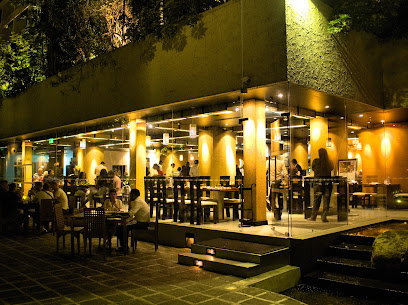
The Bavarian German Restaurant and pub
Savor authentic German cuisine at The Bavarian German Restaurant and Pub in Colombo - where tradition meets taste.
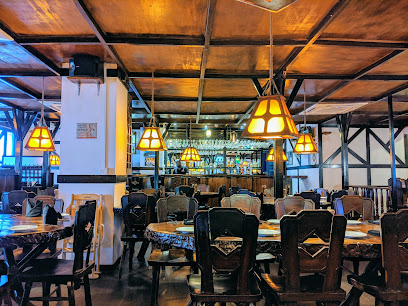
PLATES
Experience gourmet cuisine at PLATES in Colombo - where local flavors meet international flair for an unforgettable dining experience.
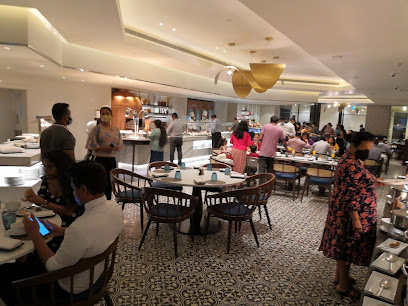
King of the Mambo
Discover King of the Mambo: A vibrant culinary gem in Colombo offering delicious fusion cuisine in an inviting atmosphere.
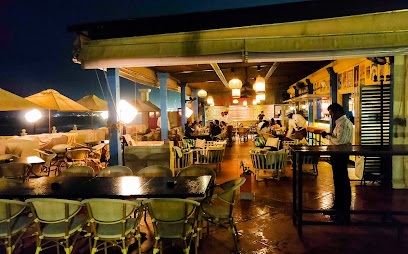
Palmyrah Restaurant
Discover authentic Sri Lankan cuisine at Palmyrah Restaurant in Colombo—where tradition meets taste.
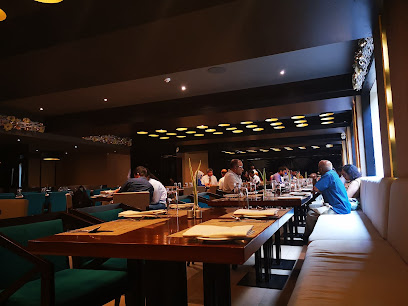
Firebeach
Experience exquisite grilled cuisine at Firebeach in Colombo, where stunning ocean views enhance your dining adventure.
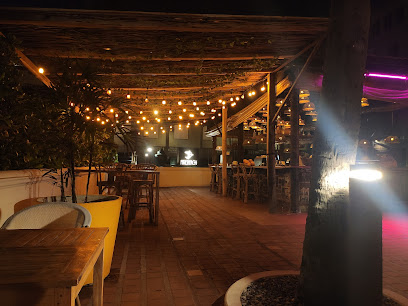
Port View Restaurant
Experience exquisite dining at Port View Restaurant in Colombo - where stunning ocean views meet delicious local and international cuisine.
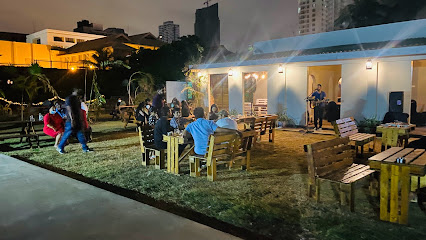
Markets, malls and hidden boutiques
Zigzag Store
Discover stylish women's clothing at Zigzag Store in Colombo, where modern fashion meets Sri Lankan flair, perfect for every occasion.
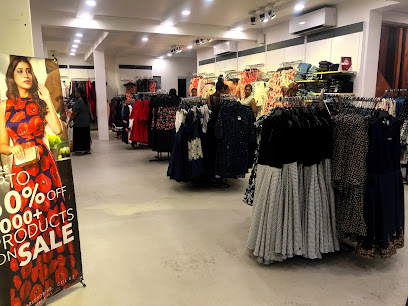
The House of Gifts - Flagship Store
Explore The House of Gifts in Colombo for unique souvenirs, handcrafted treasures, and delightful home goods reflecting Sri Lankan culture.
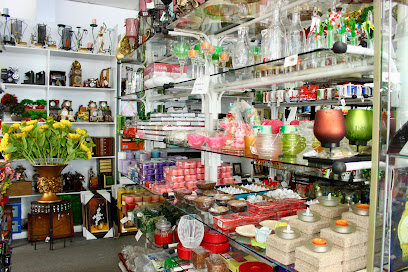
Laksaru Colombo
Explore the vibrant world of Sri Lankan souvenirs at Laksaru Colombo, where every item tells a unique story of culture and craftsmanship.
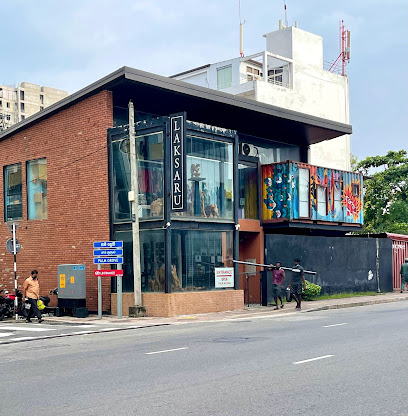
The Souq
Explore The Souq in Colombo: A hub of unique gentlemen's clothing and local fashion treasures reflecting Sri Lanka's vibrant culture.
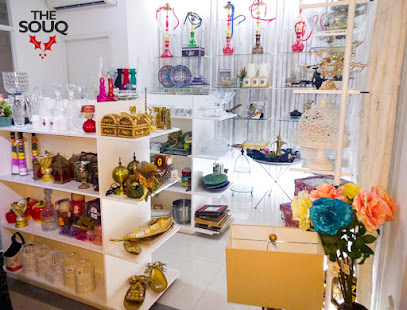
WH Sri Lanka
Explore WH Sri Lanka, a premier boutique offering trendy women's clothing and unique local designs in the heart of Cinnamon Gardens.
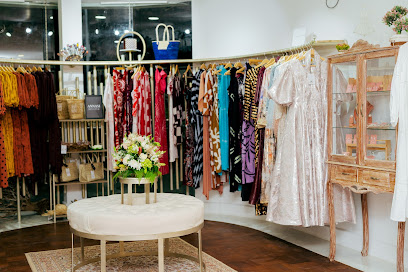
Anusha Handicrafts - Slvar Junction
Discover authentic Sri Lankan craftsmanship at Anusha Handicrafts, a gem in Colombo for unique souvenirs and cultural treasures.
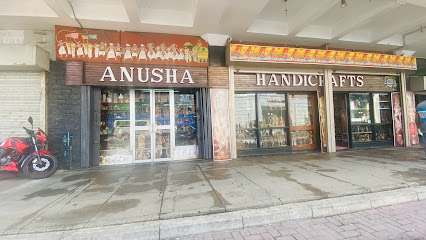
Lakarcade
Explore Lakarcade in Colombo for unique Sri Lankan crafts and souvenirs, a must-visit shopping experience within the Shangri-La Hotel.
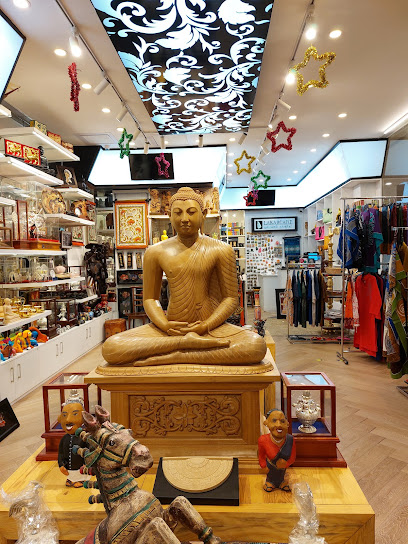
Clothing shop
Discover Colombo's vibrant clothing shop, offering a diverse range of trendy apparel and local styles perfect for every fashion enthusiast.
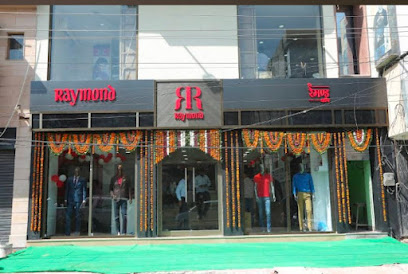
LAKARCADE
Discover unique gifts and souvenirs at LAKARCADE, the premier gift shop in Colombo, reflecting the rich culture and artistry of Sri Lanka.
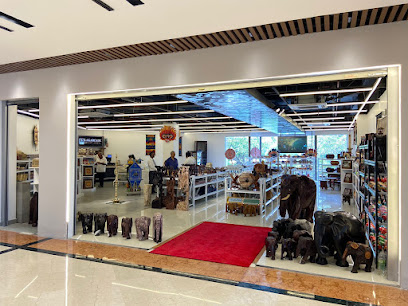
Our Shop
Explore contemporary and traditional fashion at Our Shop in Colombo, where style meets Sri Lankan culture in every unique piece.
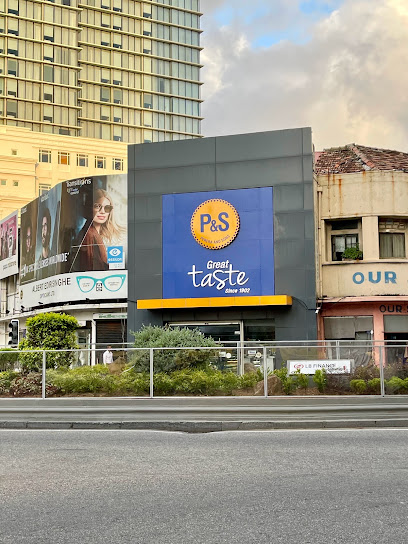
Essential bars & hidden hideouts
Cheers Pub
Experience the vibrant nightlife and delicious cuisine at Cheers Pub, a top destination in Colombo's lively Galle Road.
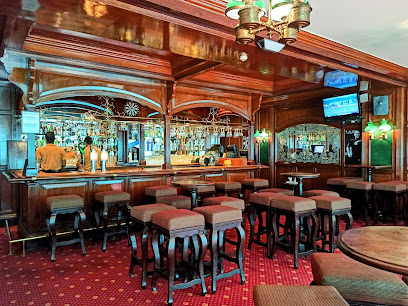
In...on the Green
Discover the lively charm of In...on the Green in Colombo, where exquisite drinks, delightful cuisine, and electrifying live music create unforgettable nights.
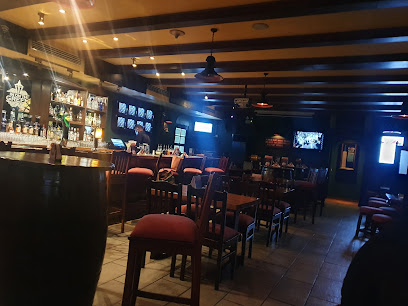
Vistas Bar
Discover the ultimate rooftop bar experience in Colombo with stunning views, exquisite cocktails, and a vibrant atmosphere at Vistas Bar.
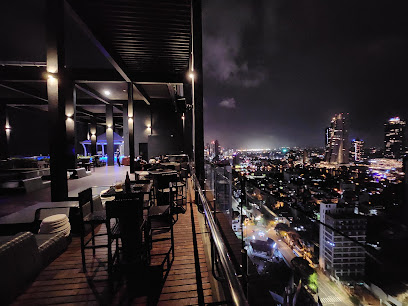
The Breeze Bar
Experience the perfect blend of relaxation and flavor at The Breeze Bar, a coastal jewel in Colombo offering stunning ocean views and delectable dishes.
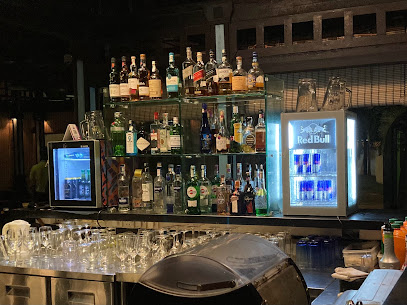
Travellers' Bar
Experience the elegance of Travellers' Bar, where Colombo's rich heritage meets modern luxury in every sip.
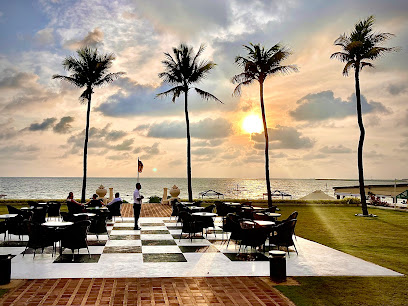
The Bar on top - Granbell - Slvar Junction
Experience breathtaking views and vibrant nightlife at The Bar on Top in Colombo, a premier destination for relaxation and socializing.
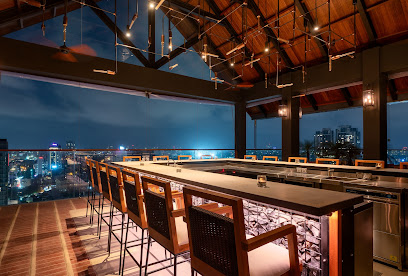
The Pearl Pub & Restaurant
Experience Colombo's vibrant nightlife at The Pearl Pub & Restaurant, where great drinks and local charm come together for an unforgettable evening.
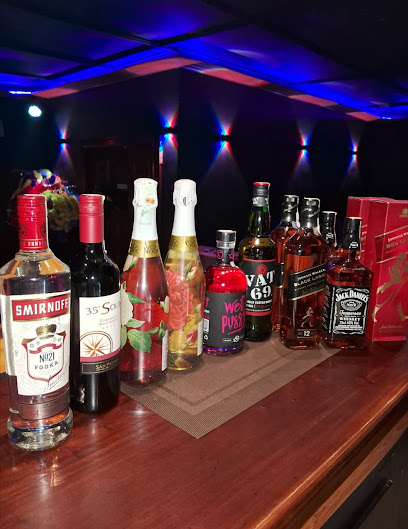
El Barrio - Tapas & Wine Bar
Experience the vibrant flavors of Spain at El Barrio - Tapas & Wine Bar in Colombo, where every dish tells a delicious story.
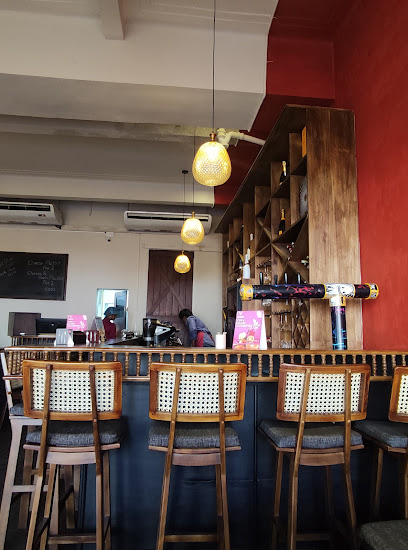
Blend bar & bistro
Experience the vibrant nightlife of Colombo at Blend Bar & Bistro, offering a diverse selection of drinks and delicious cuisine in a stylish setting.
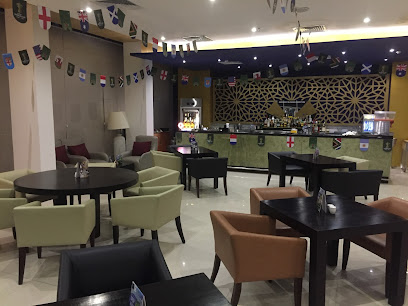
Shrimp Daddy's Bar
Experience the lively atmosphere and delectable shrimp dishes at Shrimp Daddy's Bar in the heart of Colombo.
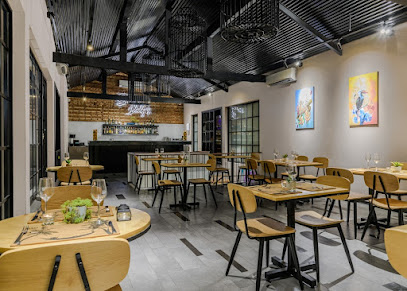
Local Phrases
-
- Helloආයුබෝවන්
[ayubōvan] - Goodbyeබයි බයි
[bai bai] - Yesඔව්
[ōvə] - Noනෑ
[nē] - Please/You're welcomeකරන්න
[karənna] - Thank youඔයාට ස්තූතියි
[ōyāta stutiyi] - Excuse me/Sorryසමාධි
[samādi] - How are you?ඔයා කොහොමද?
[ōyā kohomada?] - Fine. And you?හදන්න. ඔයා?
[hadanna. ōyā?] - Do you speak English?ඔයාගේ ඉංග්රීසි කතා කරයිද?
[ōyāgē iṅgrīsi kathā karayida?] - I don't understandමට දැනුම් කිරිමට හිටියි
[matē dænum kirimatə hitiya]
- Helloආයුබෝවන්
-
- I'd like to see the menu, pleaseකරුණාක්ෂක බලපෙරළුම බලන්න
[karunākshaka balapærlum balannə] - I don't eat meatමම මස් කන්නේ නෑ
[mama mas kannaē nē] - Cheers!සුභ උපන්
[subha upan] - I would like to pay, pleaseකරුණාක්ෂක ගෙවන්න
[karunākshaka gēvannə]
- I'd like to see the menu, pleaseකරුණාක්ෂක බලපෙරළුම බලන්න
-
- Help!උකුල් කරන්න
[ukul karannə] - Go away!පිටවන්න
[piṭavannə] - Call the Police!පොලිස් කරන්න
[polis karannə] - Call a doctor!වෛරයා කරන්න
[værayā karannə] - I'm lostමම අතරේ
[mama atarē] - I'm illමම අස්වැල්ලුවක්
[mama asvalluwak]
- Help!උකුල් කරන්න
-
- I'd like to buy...මම ... මිලේ කියාද?
[mama ... milē kiyada?] - I'm just lookingමම දැන්නට බලන්නේද?
[mama dænnat balannēda?] - How much is it?එය කොහෙද?
[ēya kohəda?] - That's too expensiveඑය ඉතිරි වේගයි
[ēya itiri vēgayi] - Can you lower the price?මිල අඩු කරන්න ද?
[mila adu karannə da?]
- I'd like to buy...මම ... මිලේ කියාද?
-
- What time is it?වේලාව කුමක් වෙයි?
[vēlāva kumak wəyi?] - It's one o'clockඑක ට
[ēka ta] - Half past (10)දෙවැනි
[dewāni] - Morningඋදේ
[udē] - Afternoonදවස
[davasa] - Eveningසවස
[sawasa] - Yesterdayඊයේ
[īyē] - Todayඅද
[ada] - Tomorrowහැක
[hēka] - 1එක
[ēka] - 2දෙව
[dēva] - 3තුන
[thuna] - 4හතර
[hathara] - 5පහ
[paha] - 6හය
[haya] - 7හත
[hatha] - 8අට
[ata] - 9නම
[nama] - 10දහය
[dahaya]
- What time is it?වේලාව කුමක් වෙයි?
-
- Where's a/the...?... කෙළින්නේද?
[... kəlinnēda?] - What's the address?ලිපිනය කුමක් ඇත්ද?
[lipinaya kumak ætəda?] - Can you show me (on the map)?මට හිතටම දෙනවාද?
[matē hitəmə dənavāda?] - When's the next (bus)?ඊළඟට මීටාව කුමක්ද?
[īlagata mītāva kumakdə?] - A ticket (to ....)ප්රාන්තය (එකට)
[prāntyaya (ēkata)]
- Where's a/the...?... කෙළින්නේද?
History of Kollupitiya
-
Kollupitiya's development began in the late 18th century with the arrival of the British colonial powers. As a coastal area, it became crucial for trade and commerce, leading to the establishment of various administrative and commercial buildings. The influence of colonial architecture is evident in many structures, showcasing the blend of British and local styles.
-
Over the centuries, Kollupitiya has evolved into a vibrant cultural melting pot characterized by a diverse population, including Sinhalese, Tamils, Muslims, and various expatriate communities. This diversity is reflected in the local festivals, culinary traditions, and daily life, making Kollupitiya an important cultural hub in Colombo.
-
Kollupitiya is home to several significant religious sites, including the historic Sri Sumanaramaya Temple and the St. Anthony's Church. These places of worship not only serve the spiritual needs of the local community but also attract visitors interested in the rich religious heritage of the area. The coexistence of different faiths in close proximity is a testament to Sri Lanka's multicultural identity.
-
The 20th century saw Kollupitiya transform into a bustling commercial district. The establishment of various shopping complexes, restaurants, and businesses contributed to its reputation as a commercial hub within Colombo. Notable landmarks, such as the Liberty Plaza, emerged during this period, drawing both locals and tourists.
-
In recent years, Kollupitiya has experienced significant urbanization, with the construction of high-rise buildings and infrastructure improvements. This development has attracted both local and international businesses, further enhancing its status as a key commercial and residential area in Colombo. The ongoing changes reflect the dynamic nature of urban life in Sri Lanka's capital.
Kollupitiya Essentials
-
Kollupitiya is easily accessible from other neighborhoods in Colombo. From Colombo Fort, you can take a local bus or a taxi, which will take approximately 15-20 minutes depending on traffic. The nearest train station is Colombo Fort Railway Station, and from there, you can hire a tuk-tuk or take a bus to Kollupitiya. The Bandaranaike International Airport is about 35 kilometers away, and you can reach Kollupitiya by taxi or airport shuttle service.
-
Kollupitiya has a variety of transportation options. Local buses run frequently and connect to different parts of the city. Taxis and tuk-tuks are readily available and are a popular choice for getting around. For those who prefer a more active approach, bicycles can be rented at various shops in the area. Walking is also a great way to explore the neighborhood, especially along Galle Road where many shops and cafes are located.
-
Kollupitiya is generally safe for tourists, but it is advisable to stay vigilant, especially at night. Areas around bus stations and markets can be crowded, so keep an eye on your belongings. While there are no specific high-crime areas targeting tourists, it’s best to avoid walking alone in poorly lit areas after dark.
-
In case of an emergency, dial 119 for police assistance or 110 for ambulance services in Sri Lanka. There are several hospitals and clinics in and around Kollupitiya. It's advisable to have travel insurance covering medical emergencies. For minor ailments, local pharmacies are available and can provide over-the-counter medications.
-
Fashion: Do dress modestly, especially when visiting religious sites. Avoid overly casual or revealing clothing. Religion: Do respect local customs; remove your shoes when entering temples. Public Transport: Do give up your seat to the elderly and disabled. Don’t engage in loud conversations or use your phone excessively on public transport. Greetings: Do greet locals with a friendly smile and a nod. A handshake is common but may be less common among women. Eating & Drinking: Do try local street food and accept invitations to share meals. Don’t waste food or show disinterest in local delicacies, as this may be considered rude.
-
To experience Kollupitiya like a local, visit the bustling markets where you can find fresh produce and unique goods. Engage with the vendors and try some local street food, like kottu roti or hoppers. Participate in local festivals if your visit coincides with them, as they offer a glimpse into the vibrant culture. Don't miss the chance to explore the nearby beaches, like Galle Face Green, where locals gather for evening walks and snacks.
Trending Landmarks in Kollupitiya
Nearby Cities to Kollupitiya
-
Things To Do in Negombo
-
Things To Do in Bentota
-
Things To Do in Hikkaduwa
-
Things To Do in Kandy
-
Things To Do in Nuwara Eliya
-
Things To Do in Galle
-
Things To Do in Unawatuna
-
Things To Do in Mirissa
-
Things To Do in Matara
-
Things To Do in Ella
-
Things To Do in Sigiriya
-
Things To Do in Anuradhapura
-
Things To Do in Polonnaruwa
-
Things To Do in Trincomalee
-
Things To Do in Kanyakumari













